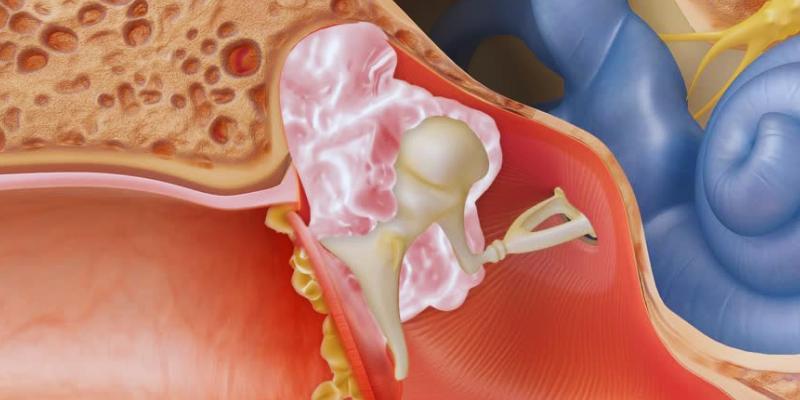Can Mindfulness Meditation Ease Anxiety and Mental Stress
Mindfulness meditation is a way to calm the mind by staying present and aware. Many believe it can help ease anxiety and lower mental stress. Instead of focusing on the past or worrying about the future, mindfulness brings attention to the here and now. Studies suggest it may help people feel more relaxed and think more clearly. In the long run, mindfulness can change how the brain handles stress. Whether one feels overwhelmed or simply wants to find peace, mindfulness meditation could be a helpful practice for mental well-being.
What Is Mindfulness Meditation?
Definition of Mindfulness Meditation
Mindfulness meditation is the act of staying in the present moment. It means being aware of thoughts, feelings, and surroundings without judging them as good or bad. This type of meditation helps one focus on now instead of worrying about the past or future. By sitting quietly and noticing the breath or sensations, mindfulness allows the mind to slow down and feel calm. The goal is not to change anything but to observe and accept things as they are.
How It Differs from Other Types of Meditation
Mindfulness meditation is different because it focuses on being aware without aiming for a specific outcome. Some types of meditation, like spiritual or goal-based ones, may involve repeating phrases or reaching a higher state of mind. Mindfulness, however, is about noticing the present moment just as it is. There is no need to block out thoughts or try to feel a certain way. Its simpleobserve and accept. This makes it easier for many people to use mindfulness in their daily lives compared to other forms of meditation.
Growing Popularity Of Mindfulness Meditation

In recent years, mindfulness has become popular worldwide. Programs in schools, workplaces, and even health care systems now use mindfulness to reduce stress and improve focus. Its simplicity and proven benefits make it appealing to all kinds of people. From ancient practices to modern wellness trends, mindfulness is used to improve mental and emotional health.
How Do Anxiety and Mental Stress Affect the Mind and Body?
The Physical Effects of Anxiety
Anxiety can cause changes in the body that are easy to feel. The heart may beat faster, muscles might become tight, and energy levels often drop, leaving one feeling tired. Some people experience headaches, stomach issues, or trouble sleeping. These physical signs show how the body reacts to ongoing worry or fear. Over time, these effects can make the body weaker, affecting health and daily life. Recognizing these signs is the first step toward finding ways to feel better and take care of the body.
Mental Symptoms of Stress
Stress can take over the mind, making it hard to think clearly. Racing thoughts may fill the head, leaving one unable to focus or relax. Feeling irritable or easily upset is also common when under stress. Minor problems might feel bigger than they are. It can also be hard to remember things or make good choices. These mental effects show how stress impacts the brain, making it less able to deal with challenges. Learning to calm the mind can help bring back balance and peace.
Why Managing Anxiety and Stress Is Essential for Well-Being
If left unchecked, anxiety and stress can harm both the mind and body in the long run. They can lead to serious health problems like heart issues or long-term sadness. Managing stress helps keep the body strong and the mind clear. It also improves sleep quality, energy, and relationships with others. Finding ways to calm down during stress (such as breathing exercises or mindfulness) can bring relief and improve overall well-being. Taking small steps to reduce stress is important for living a healthier and happier life.
How Mindfulness Meditation Helps with Anxiety and Stress
Reducing the Stress Response
When the body feels danger, it goes into fight-or-flight mode. When your body enters this state, the heart starts beating fast, the muscles get tense, and so on. Mindfulness meditation helps calm this reaction by slowing the breath and focusing the mind.
By staying present and letting go of worry, one signals to the body that it is safe. This lowers the stress hormones (chemicals) in the body, which also means that your body becomes less tense physically. If made a habit, practicing mindfulness can help the body respond less strongly to stressful events, making it easier to stay relaxed in daily life.
Improving Emotional Regulation
Stress can make it hard to manage feelings, leading to anger, fear, or sadness. Mindfulness meditation helps one notice their emotions without letting them take over. When you focus on the present moment, it becomes much easier to pause and reflect before you react immaturely. This practice builds emotional strength and allows for better control during tough times. It teaches one how to handle emotional stress without feeling overwhelmed and deal with it in a much healthier way.
Encouraging Relaxation and Restfulness
Mindfulness meditation creates a sense of calm by slowing down the mind and body. Focusing on the breath or simple movements helps clear racing thoughts and ease tension. This practice encourages the body to rest and recharge, which improves the way you relax. You feel much more calm and refreshed. This type of meditation can make it easier to relax, even in busy or stressful moments.
Steps to Start Mindfulness Meditation for Anxiety Relief

Find a Quiet Space for Practice
Choose a calm place where one can sit without being disturbed. It could be a corner of a room, a garden, or anywhere peaceful. The spot does not need to be perfect, just quiet enough to focus. Sitting on a chair, a cushion, or even the floor works fine. Keeping this space ready for meditation makes it easier to practice every day.
Begin with Basic Breathing Exercises
Start by taking slow, deep breaths in and out. Focus on how the air moves in through the nose and out through the mouth. If the mind starts to wander, gently bring attention back to the breath. Breathing deeply helps relax the body and calm the mind. It is a simple yet powerful way to ease stress.
Focus on the Present Moment
Pay attention to what is happening right at that moment. Notice the sound of the air? Pay attention to it. Feel the ground touching your body? Pay attention to those body parts. You can also focus on the sound of the heart beating.
Its important to not overthink stuff here. But, if a thought does come up, do not push it away. Fighting your thoughts goes against the practices of mindfulness meditation. What you should do instead is to just simply observe the thought and let it go, bringing attention back to the moment. This practice helps build awareness without judgment.
To Wrap Up
At first, you can try mindfulness meditation for just five minutes. Youll notice that it becomes easier to focus. If thats the case, you can add a few more minutes, day by day. Over time, practicing for ten, fifteen, or even twenty minutes will start feeling natural. The key is to build the habit slowly and stay consistent. Small steps make it easier to stick with the practice in the long term.












